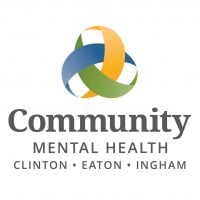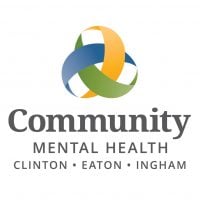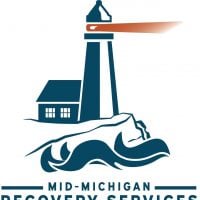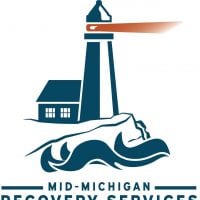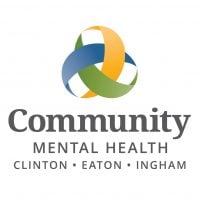Professional Psychological & Psychiatric Services - Lansing
Drug Rehab Center in Lansing, Michigan
Professional Psychological & Psychiatric Services - Lansing (PPPS-L) is a mental health and addiction treatment facility in Lansing, Michigan, providing personalized assessment, diagnosis, and treatment for an array of mental health and addiction-related issues, including medication-assisted treatment (MAT) and crisis stabilization.
About Professional Psychological & Psychiatric Services - Lansing in Michigan
Professional Psychological & Psychiatric Services (PPPS) in Lansing, Michigan, focuses on outpatient mental and behavioral health care for adults grappling with substance abuse issues. Their blend of intensive outpatient programs, including services catered towards young adults, families, and individuals with co-occurring disorders, sets them apart. Clients at PPPS receive a holistic treatment approach, emphasizing personal growth and sustained sobriety.
- Comprehensive Care: Offers a range of outpatient services, including IOP, general OP, and aftercare, tailored to meet the unique needs of each client.
- Specialized Services: Dedicated programs for young adults, couples, and families, addressing the multifaceted aspects of addiction and mental health.
- Robust Aftercare Support: Aftercare planning and step-down support ensure clients transition smoothly into long-term recovery.
PPPS is recognized for its high standards, evidenced by its state licensure and CARF accreditation. Accepting various payment methods, including private insurance and Medicaid, makes their programs accessible. Financial aid options underscore their commitment to making recovery achievable for everyone.
The center treats a wide array of addictions and mental health issues, employing a mix of proven therapeutic modalities. With levels of care ranging from intensive outpatient to aftercare programming, clients are guided through their recovery journey with personalized care plans focused on relapse prevention, life skills training, and medication management.
Genders
Ages
Modality
Additional
Accreditations

CARF
The Commission on Accreditation of Rehabilitation Facilities (CARF) is a non-profit organization that specifically accredits rehab organizations. Founded in 1966, CARF's, mission is to help service providers like rehab facilities maintain high standards of care.
Conditions and Issues Treated
Opioid addiction has become a significant health problem in the United States. In 2015, there were 91 opioid overdose-related deaths per day, with a substantial increase in mortality rate in 2014.
When opioid addiction has reached a point where a person’s life becomes unmanageable, treatment options are available to help them get sober. Treatment that includes medical care with medications and counseling can help a user transition into sobriety.
When someone in struggles with both addiction and mental or emotional illness, this is considered a dual diagnosis. Dual diagnosis treatment can include therapy for these issues to happen simultaneously, which will allow either of them to be treated effectively.
Sometimes people who have suffered from addiction disorder also suffer from co-occurring disorders such as depression, anxiety, bipolar disorder, etc., making them “dual diagnoses.” Dual diagnoses require specialized treatment programs where drug and alcohol addiction are addressed along with psychiatric illnesses. Some rehabilitation facilities provide patients suffering from cooccurrences a program with highly integrated services and a clean environment with few distractions to help them succeed.
Levels of Care Offered
This center offers a variety of custom treatment tailored to individual recovery. Currently available are Drug Rehab, Dual-Diagnosis, Intensive Outpatient, Outpatient, with additional therapies available as listed below.
The Intensive Outpatient Program offered by Professional Psychological & Psychiatric Services - Lansing is designed for those who need intensive care but would rather get it in the comfort of their own home. The treatment programs vary in duration and intensity and can be tailored to suit the patient’s needs. The program includes regular visits to the facility, though the overnight stay is not needed. IOP is suitable for patients who have been treated in residential treatment programs and are in the transition phase. It helps the patient live at home and discharge some work or school responsibilities even while undergoing treatment. The patients gradually get back to their routine life with the support of a friend or family member.
Outpatient treatment is often used for drug addicts in drug rehab. Outpatient treatment consists of counseling and therapy sessions. This form of treatment is also called ‘day-treatment’. The outpatient treatment process begins with the addict’s initial detox period, lasting about ten days.
Outpatient treatment is used for those who are at moderate risk for ‘slipping back’ into the addiction, for those who:
- Are not currently experiencing any side effects from withdrawal and can handle social pressure
- Can handle stressors that might trigger relapse
- Have a stable living environment or have moved out of their previous environment, which was not conducive to being sober
- Have a support system that allows them to go to a facility a few times a week while still keeping their current responsibilities
- Have no legal obligations, being either on parole or probation, that require them to seek treatment at a mandatory facility
- Are not currently experiencing any side effects from withdrawal and can handle social pressure
- Have a stable living environment or have moved out of their previous environment, which was not conducive to being sober
Therapies & Programs
Because no single treatment is effective for all addicts, the goal of treatment and therapy should be to figure out what works best for each individual. Tolerance and withdrawal levels differ from person to person, affecting the treatment intensity required. Addiction treatment should aim to help addicts develop healthy coping mechanisms for dealing with their addiction and its underlying causes.
Couples therapy works with clients and significant others in a professional capacity to improve relationship dynamics. This can be helpful for addicts who are trying to marry the idea of recovery into their work, family, social lives – any aspect that has to do with relationships. Through counseling sessions, addicts will have an opportunity to talk about their addiction with professional partners.
Family therapy is beneficial for people who are in addiction treatment services because it offers addicts the opportunity to work with their family members to better understand what led them to make choices that contributed to their addiction.
This type of therapy helps family members reach a deeper understanding of how they can best support their loved one during recovery. It also helps the addict better understand their own motivations and triggers that led them to turn to substance abuse.
Family therapy can help addicts in the following ways:
- Assists family members in processing difficult feelings so they don’t blame or resent recovering addicts
- Assists family members in understanding how addiction has impacted the addict and everyone who is involved with them
- Allows the addict to take responsibility for their actions, while encouraging improved communication skills
- Helps family members understand how to best support an individual in recovery so addicts don’t relapse again.
Group therapy can help build a stronger support system and give addicts in Lansing, MI insight into their addiction that they gain through shared conversations. Group therapy occurs in a controlled group environment, exclusive of one on one meetings. This makes it safer for patients to feel comfortable sharing the struggles they’re going through and gaining perspective.
Payment Options Accepted
For specific insurance or payment methods please contact us.
Is your insurance accepted?
Ask an expert, call (888) 674-0062
Professional Psychological & Psychiatric Services Associated Centers
Discover treatment facilities under the same provider.
- Professional Psychological & Psychiatric Services - Saginaw in Saginaw, MI
- Professional Psychological and Psychiatric Substance Abuse Services in Lansing, MI
- Professional Psychological and Psychiatric Substance Abuse Services in Saginaw, MI
- Professional Psychological & Psychiatric Services - Detroit in Detroit, MI
Learn More About Professional Psychological & Psychiatric Services Centers
Additional Details
Specifics, location, and helpful extra information.
Lansing, Michigan 48910 Phone Number(517) 977-0899 Meta DetailsUpdated April 15, 2024
Staff Verified
Professional Psychological & Psychiatric Services - Lansing Patient Reviews
There are no reviews yet. Be the first one to write one.
Lansing, Michigan Addiction Information
Michigan has the second-highest rate of drug and alcohol abuse in the nation. Heroin is linked to more than 50% of the state's hepatitis C cases. Marijuana is the drug most often associated with crimes in Michigan, followed by methamphetamines. Opioids alone are responsible for almost 20% of all drug overdose deaths in Michigan.
In Lansing, the most common types of drugs that people abuse include heroin, meth, and cocaine. In 2013, over 300 people died from a heroin overdose in Lansing. 1 out of every 25 adults in Lansing has an alcohol addiction. 4.8% of Michigan's population abuses illicit substances. In Lansing, MI inpatient rehab centers can provide users with the medical care and resources they need in order to get sober.
Treatment in Nearby Cities
- Coldwater, MI (61.0 mi.)
- Romulus, MI (67.3 mi.)
- Ontonagon, MI (370.0 mi.)
- West Branch, MI (106.8 mi.)
- Three Oaks, MI (125.9 mi.)
Centers near Professional Psychological & Psychiatric Services - Lansing
The facility name, logo and brand are the property and registered trademarks of Professional Psychological & Psychiatric Services - Lansing, and are being used for identification and informational purposes only. Use of these names, logos and brands shall not imply endorsement. RehabNow.org is not affiliated with or sponsored by Professional Psychological & Psychiatric Services - Lansing.


